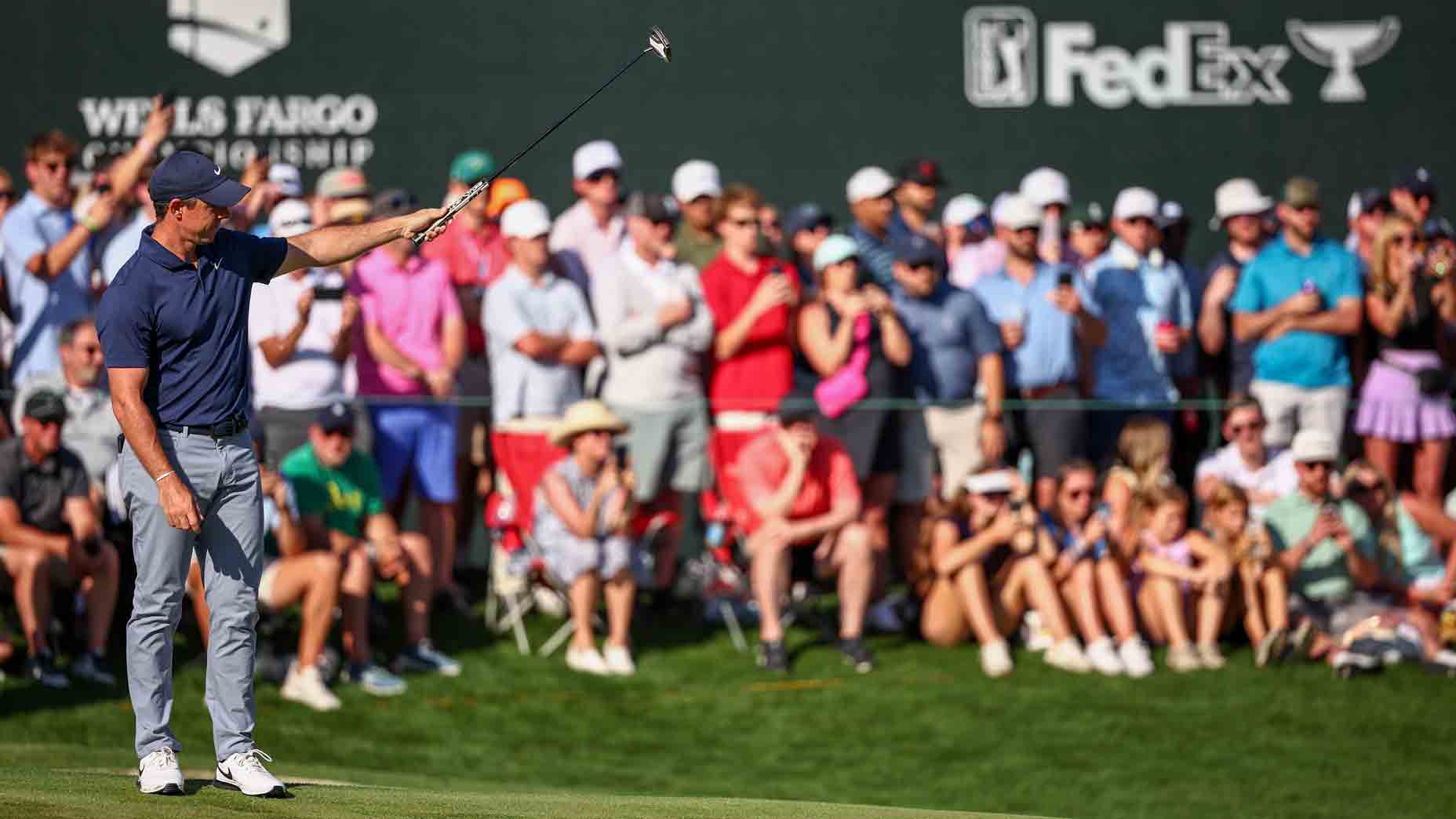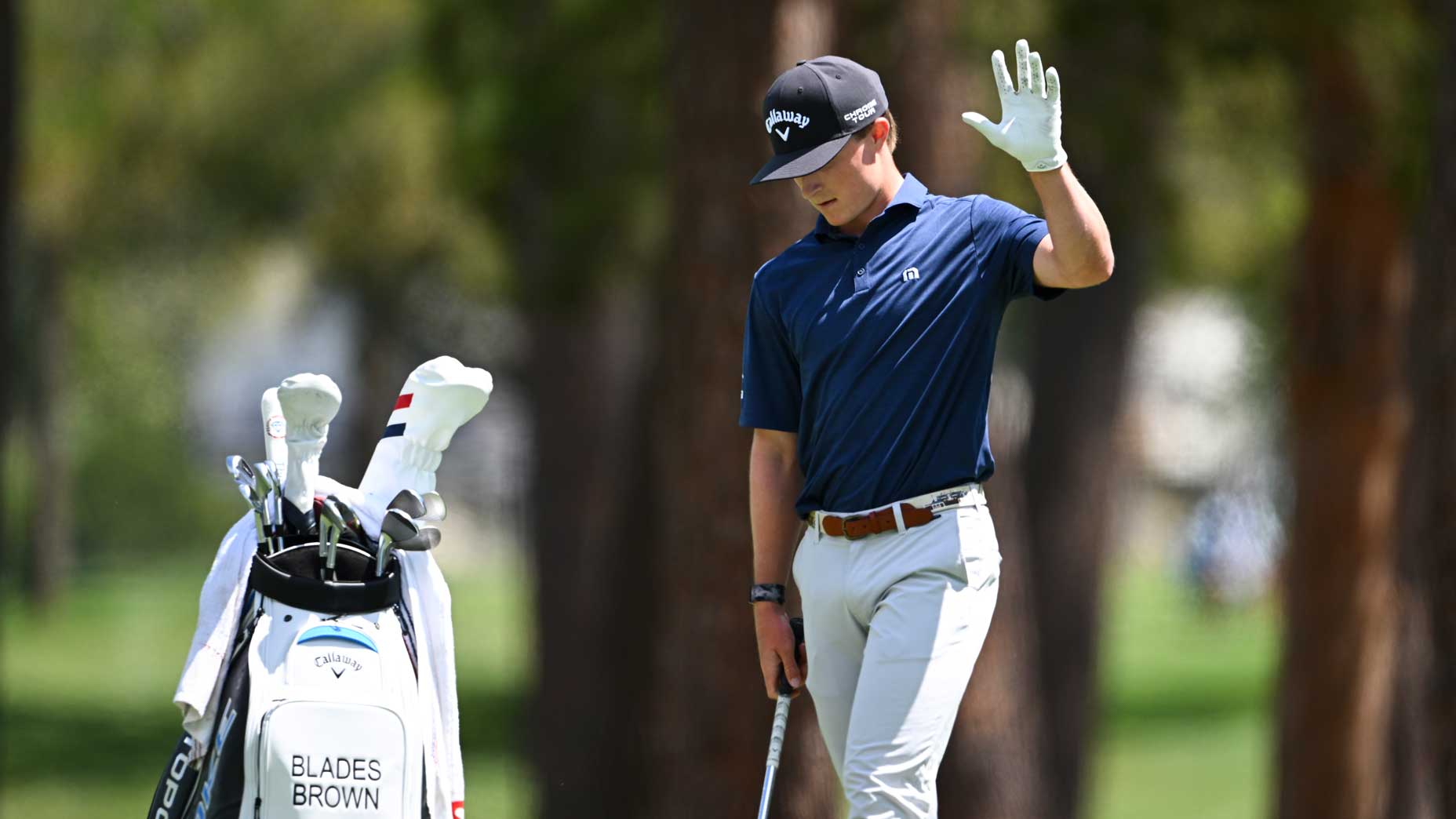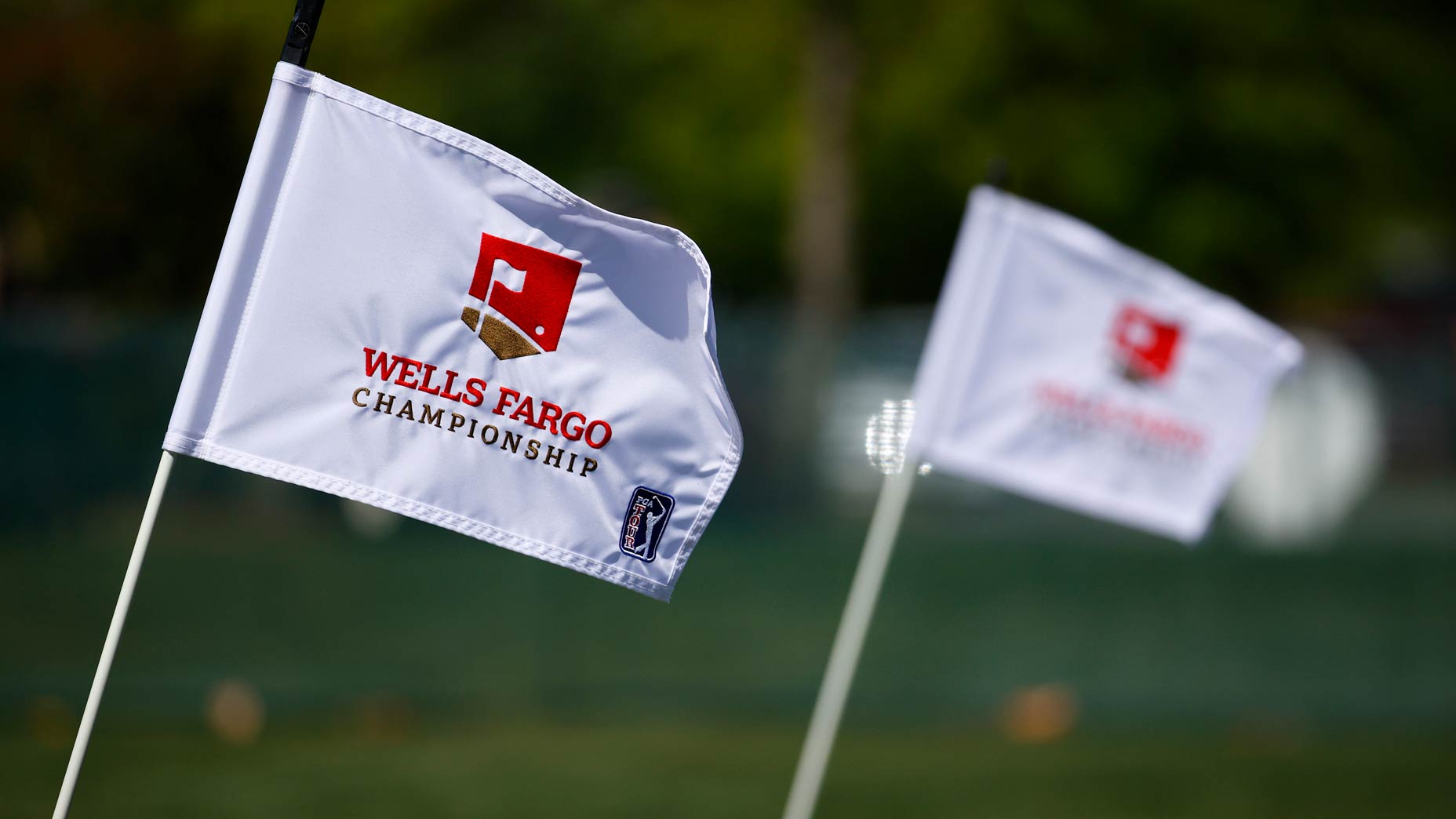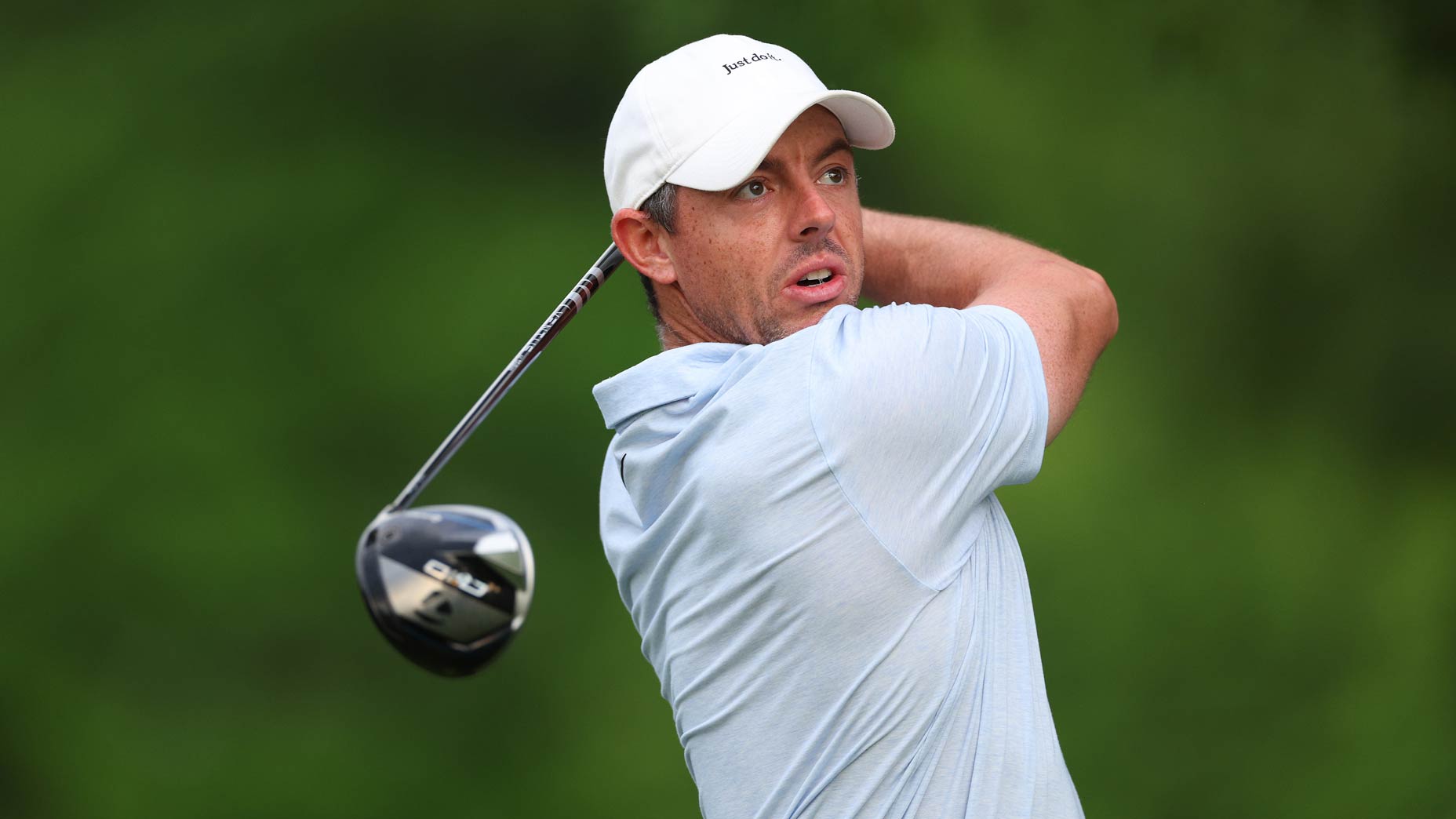Tiger’s in. A top exec is out. What’s next for PGA Tour leadership?

The PGA Tour is in the midst of a summer of dramatic change.
Getty Images
Just two days before the beginning of this year’s FedEx Cup Playoffs, PGA Tour members received a surprising email: Andy Pazder, a longtime member of the Tour’s leadership team, was stepping down — effective immediately.
Given Pazder’s stature at the Tour, the announcement came as a shock. But in other ways it was just the latest in a string of structural changes at the Tour, which has spent its summer in a continual state of flux. Golf Channel’s Jaime Diaz, reacting to the announcement in real time, described it as “constant change at a crucial moment.” That felt about right.
So what has been happening with Tour leadership, what does it mean for the Tour’s future, and what’s next?
AN EXECUTIVE’S EXIT
The email to players was brief.
“Earlier today, Andy Pazder informed the PGA TOUR of his decision to resign his position, effective immediately,” wrote Tour commissioner Jay Monahan. “Tyler Dennis will assume Andy’s responsibilities, overseeing our tournaments and competitions. Please contact Player Relations if you have any questions regarding Andy’s resignation.”
It was a surprising announcement for several reasons. For one, Pazder — the Tour’s chief tournaments and competition officer, overseeing all things tournament-related — had worked at the Tour for more than three decades, previously serving as executive vice president, chief of operations for the Tour and, before that, in tournament administration for the PGA Tour Champions and Korn Ferry Tour. In recent years he’s been central in important Tour-related decisions like the Tour’s early return to play during the summer of 2020 or the new FedEx Cup Playoffs format.
It was also surprising given the integral role Pazder was expected to play in the Tour’s future. On July 26 he’d been appointed to the Player Benefit Program committee, which will evaluate the idea of compensating Tour pros who didn’t join LIV. He was also named to the Player Discipline task force to figure out a potential pathway for LIV players back to the Tour.
Multiple sources with knowledge of the situation say that Pazder’s resignation was not issued voluntarily. Instead it came as a result of what the Tour deemed was inappropriate conduct that violated company policy. Initially Pazder was expected to stay on until later in the year — but his resignation was suddenly accelerated in Memphis.
In a meeting with reporters on Wednesday, Monahan added no additional details.
“I don’t have anything to add beyond the statement that was issued yesterday, other than I had the opportunity to thank Andy for 34 years of contributions to the PGA Tour, which were significant and meaningful,” he said.
MONAHAN’S RETURN
Pazder’s departure comes at a turbulent time for leadership in and around the PGA Tour — turbulence that has come in the aftermath of the controversial June 6th announcement of a framework agreement between the Tour and the Saudi PIF.
A week after that announcement, Monahan — facing widespread criticism for its rollout — stepped away on an unexplained medical leave. He returned to his role just over a month later, on July 17th, insisting that time away had allowed him to recover. He gave more insight into what he’d faced in a meeting with reporters in Memphis on Wednesday, explaining that he was experiencing anxiety so significant it was creating “physical and mental health issues and challenges.”
“I fully committed to a process, and I was not going to come back until I was told by doctors and medical experts and my wife and my girls that I was fully supported in coming back,” he said, admitting his return wasn’t guaranteed. “That was not something that was a certainty when I stepped away, but I was committed to going through, doing everything I possibly could to get myself back in that position.”
Monahan said he felt comfortable stepping away knowing the Tour had a “great team in place.” His duties were assumed by Executive Vice President Tyler Dennis and Chief Operating Officer Ron Price.
Dennis was also mentioned in this week’s announcement; he’ll be picking up the responsibilities shouldered by Pazder.
BOARD CHANGES
While Monahan was on leave for some of the immediate fallout from the announcement — like, say, an appearance at the Senate, which Price handled — when he resumed work, the fallout did too. On the first weekend following Monahan’s return, former AT&T executive Randall Stephenson resigned from the PGA Tour’s policy board, citing “serious concerns” about the proposed agreement and writing that it “is not one that I can objectively evaluate or in good conscience support, particularly in light of the U.S. intelligence report concerning Jamal Khashoggi in 2018.”
He had planned to resign a month earlier but stayed on out of respect for Monahan’s health.
Stephenson was hardly the only one who expressed concerns. Scottie Scheffler, Xander Schauffele and Jordan Spieth were among those who spoke out expressing displeasure at the lack of transparency that accompanied the agreement. Away from microphones, dozens more agreed that a decision this monumental shouldn’t be allowed to happen without any player input. On the Monday after the Open Championship, Monahan had a conversation with three of the game’s most recognizable faces. Those three players — Spieth, Adam Scott and Tiger Woods — had a list of requests and a list of players who’d co-signed them.
Among the most significant was for Woods to join the board. Monahan endorsed that move quickly.
“I couldn’t say yes fast enough,” he said. “Because he’s essentially been, in a certain way, in that role behind the scenes. I think it’s a tremendous statement, and it gives our players great confidence to know that he’s in that spot.”
While the move came with Monahan’s approval, the announcement’s wording was telling. Woods’ statements were defiant, speaking for the players in calling it a “critical point” in the Tour’s history and thanking Monahan for “agreeing to address our concerns.”
Monahan’s quotes, by contrast, came across as apologetic.
“I am committed to taking the necessary steps to restore any lost trust or confidence that occurred as a result of the surprise announcement of our Framework Agreement,” he said.
Woods joins player directors Patrick Cantlay, Charley Hoffman, Peter Malnati, Rory McIlroy and Webb Simpson on the board. He scored an additional win for player control by securing access for special advisor Colin Neville, who will work closely with the player directors and have access to all documents and information pertaining to negotiations related to the Framework Agreement. Neville, one of the founding directors of the Premier Golf League, was also involved in the player-led Delaware meeting that took place last August and ushered in an era of greater player collaboration.
Monahan lauded that move, too.
“To hire Colin to be there for the player directors I think gives the player directors comfort and only strengthens our discussions as we go forward,” he said.
JASON GORE’S PROMOTION
Another change meant to immediately build trust and empower pros was the promotion of Jason Gore to a new position, Executive Vice President and Chief Player Officer, establishing him as the point person on player input, player relationships and player partnerships and establishing a direct line between him and the commissioner.
Gore was also named to both committees that Pazder was: the three-person task force studying penalties for LIV defectors and the committee studying a potential player benefit program for Tour pros who stayed loyal.
His elevation was consistent with Monahan’s other moves, seeking to strengthen his own position by empowering players and their allies. Whether their empowerment reflects back onto Monahan remains to be seen.
BIG DECISIONS LOOM
It doesn’t feel hyperbolic to say that the in the coming months the Tour will face two of the biggest decisions in its history.
It has already gone a long way towards answering the first; included in Monahan’s first memo back was the Tour’s decision not to adopt the USGA’s model local rule that would roll back the golf ball.
“Although there has been some level of support for limiting future increases, there is widespread and significant belief the proposed Modified Local Rule is not warranted and is not in the best interest of the game,” Monahan wrote.
As for the second? It’s tough to even refer to the deal with the PIF as one single decision; it’s a series of intertwined negotiations that will shape the Tour’s schedule, its financial structure, its competitive structure, its non-profit status, its relationship with LIV, its business dealings with Saudi Arabia and more. As currently written, that deal has to get done by the end of 2023. And right now? Nobody seems clear what will happen.
“You have the framework agreement, which nobody is entirely sure what that means, and then you’ve got whatever they’re working towards,” Scheffler said in Memphis. “The position where I’m sitting now, it just seems like they’ve got a long way to go — so there’s still not really much to say. We still don’t really have a great idea as to what is going on right now.”
Monahan was slightly more optimistic in his vision, reiterating the Tour’s commitment to try to reach an agreement with the PIF while also declaring that the Tour’s model would be sustainable regardless. He and Dennis each stressed the positives that have come from the past year, highlighting player input in particular.
“One of the most positive things about all the conversations this summer has been that while we’re listening and learning and taking feedback, the players are getting more and more engaged in their organization, and that’s a good thing,” Dennis added.
In other words, they’re pleased with the leadership of the players and the direction of the product. As for how fans and players will view the leadership of the leadership?
“My performance has always been and will continue to be measured based on results and the productivity of the organization, results delivered and done in the right way,” Monahan said. “That will be determined when we complete this process.”










